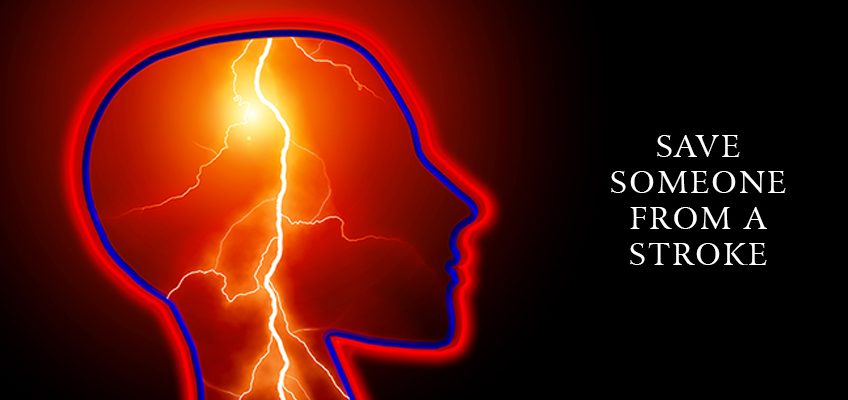Many of us have either experienced or heard stories of people who have died after a stroke. But first, what is a stroke? It is when the brain is deprived of oxygen due to either a clot in the brain's blood (Ischemic Stroke) or a rupture of the blood vessels in the brain (Hemorrhagic Stroke). The lack of blood flow results in depletion of oxygen, and the brain cells die. If not caught early, it can result in permanent brain damage or even death.
When we hear stories of people succumbing to a stroke, often we hear that there was no intervention or even recognition of the fact that the victim was suffering from a stroke. Lack of knowledge in identifying a stroke results a lot of people becoming paralysed or even dying.
What are the symptoms of a stroke?
Usually, there is weakness or numbness in the face, legs, arms or one side of the body. There might be a loss of vision in one or both eyes. There could be difficulty in talking, understanding simple commands, etc. A sudden headache might occur without any apparent reason.
These symptoms are usually first noticed by the victim himself. He should be able to call someone's attention and describe the symptoms and suggest transfer to a medical facility immediately. However, often the victim is too traumatised at the onset or is in denial to do anything about it. It is then that people close to him should be able to identify the onset of a stroke.
Remember the first three letters of the word "stroke" - "S", "T" and "R".
- First, ask the victim to SMILE.
- Second, ask him to repeat his name.
- Third, Ask him to raise both arms ... (or stick out his tongue).
In case of ANY difficulty in ANY of these three tasks, move to a medical facility immediately.
Almost half of all stroke cases are preventable. Also, immediate medical intervention reduces the risk of permanent brain damage (or death) substantially. There are some factors that increase the possibility of suffering from a stroke. High blood pressure, high cholesterol and diabetes, for instance. Smoking, excessive alcohol consumption and obesity are also added risk factors and controlling these reduces the possibility of suffering from a stroke. Generally strokes occur in people over 65 and more in men, though they are deadlier in case of women who have fewer strokes as a gender.
As a potential victim, control the risk factors and get yourself regularly checked. As an innocent onlooker and bystander, learn to recognise the symptoms of a stroke so that you can intervene and get the person to a doctor. The sooner medical intervention in received, the higher the chances of a full recovery.










Leave a Reply
You must be logged in to post a comment.